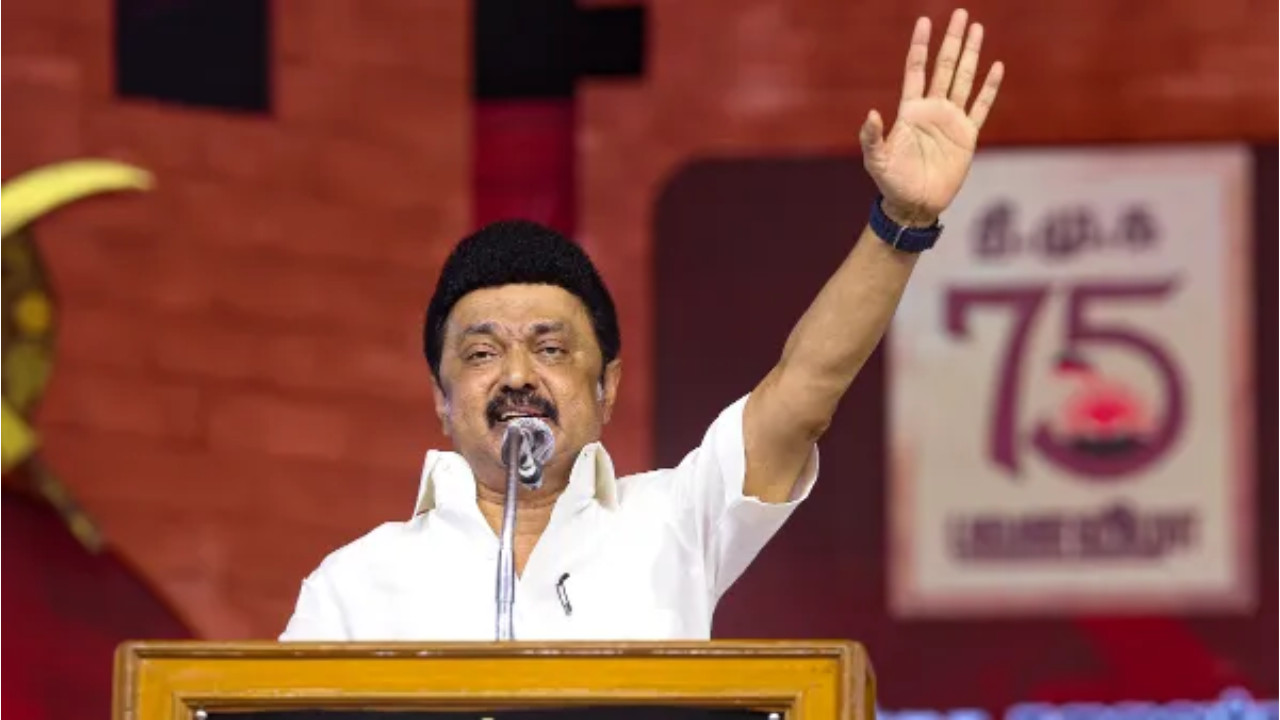
DMK Faces Criticism in Tamil Nadu Over Temple Mismanagement and Controversial Remarks (Image Source: OneIndia (File Photo))
The DMK government in Tamil Nadu is facing strong criticism as it enters its fourth year in power. People and political parties have raised concerns about the poor condition of temples managed by the Hindu Religious and Charitable Endowments (HR&CE) department. The government is also under fire for controversial remarks by its leaders that many say are against Hindu beliefs.
Tamil Nadu has 44,121 temples under HR&CE, many of them several centuries old. Devotees have expressed worry about the poor condition of these temples. A notable case is the Selva Vinayagar Temple in Palakkarai, which has not seen any repair or a consecration ceremony for the last 30 years. This has led to growing demands for urgent restoration. The enormous wealth these temples possess is what many people find troubling. Together, they own 4.78 lakh acres of land and more than 22,600 buildings. Still, the rent collected between July 2022 and March 2023 was just ₹117.63 crore. Critics argue this gap shows serious flaws in the way temple income is being handled.
In addition to neglect, land invasion is a common issue. Historical temples such as Sri Varaguna Pandeeswarar and Sri Nellaiappar in Tirunelveli have reportedly lost thousands of acres to illegal occupiers. Shockingly, even some government departments are said to be part of these encroachments.
Financial management has also drawn criticism. Issues such as low wages for priests, misuse of resources, and lack of clear records have been reported. Retired police officer Pon Manickavel revealed that priests at Pullamangai Temple in Thanjavur earn only ₹300 a month. The Comptroller and Auditor General (CAG) too has slammed the HR&CE department for wasting revenue and failing to provide transparent documents on temple properties.
The impact of poor administration is being felt directly by devotees. Many temples lack basic facilities like drinking water, toilets, and shaded areas for waiting. During festivals, devotees often face long delays and overcrowding. At major centres such as Thiruvannamalai and Thiruchendur, people have collapsed while waiting for prasadam. There are also complaints of unfair practices during darshan. A rickshaw driver from Thiruvannamalai claimed that while darshan is supposed to be free or cost only ₹50, some demand up to ₹1,000 for faster access. He suggested that if the government regularised such charges officially, the money could be used to improve temple facilities instead of being misused.
Along with mismanagement, statements from DMK leaders have added fuel to public anger. Deputy Chief Minister Udhayanidhi Stalin caused national outrage when he compared Sanatana Dharma to diseases like dengue and malaria, calling for its “eradication”. His comments drew sharp responses from the BJP and several Hindu groups. Hinduism is a global menace that encourages injustice through caste and economic divisions, according to DMK Deputy General Secretary and Nilgiris MP A Raja, further igniting controversy.Chief Minister M.K. Stalin also faced backlash for mocking Sanskrit chants, saying understanding them would make one “tremble”. These remarks have upset religious communities and increased tensions with devotees.
The mix of poor temple management and inflammatory comments has triggered protests by devotees, religious leaders, and mutts, including the well-known Madurai Aadheenam. Many accuse the DMK of attacking Hindu beliefs, weakening temple traditions, and using religion for politics. As discontent grows, temple administration and religious sensitivity have become major political issues in Tamil Nadu. With pressure rising from devotees, opposition groups, and civil society, the DMK government is under serious watch—not only for how it handles temples but also for how its leaders speak about faith.





Copyright © 2026 Top Indian News
